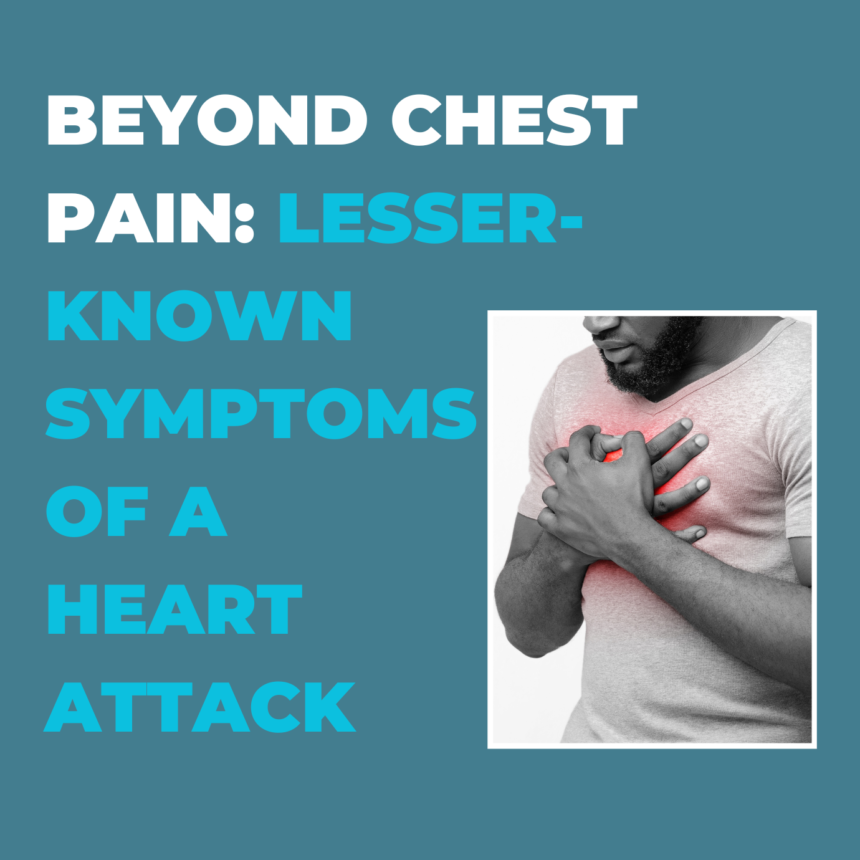When we think of a heart attack, chest pain is the symptom that often comes to mind. However, it’s important to be aware that heart attacks can manifest in various ways, and some symptoms may not involve chest pain at all. Recognizing these lesser-known symptoms can be crucial in seeking timely medical attention and potentially saving lives. Here are some symptoms that are often overlooked but can indicate a serious cardiac event:
- Shortness of Breath: Feeling breathless or experiencing difficulty breathing, even without any physical exertion, can be a sign of a heart attack. This symptom may occur alongside or without chest discomfort.
- Fatigue: Unexplained fatigue or a sudden onset of extreme tiredness can be a warning sign of a heart attack, especially in women. It may feel like an overwhelming and persistent exhaustion that doesn’t improve with rest.
- Discomfort in Upper Body: Instead of or in addition to chest pain, a heart attack may cause discomfort or pain in other areas of the upper body, such as the jaw, neck, shoulder, arms (particularly the left arm), or even the back. This pain may come and go or radiate down the arm.
- Nausea or Indigestion: Some people experiencing a heart attack may mistake their symptoms for indigestion or a stomach-related issue. Persistent nausea, vomiting, or stomach discomfort that is not relieved by antacids or other remedies should not be ignored.
- Dizziness or lightheadedness: Feeling dizzy, lightheaded, or experiencing unexplained fainting spells can be a sign of a heart attack. These symptoms may occur suddenly and should not be dismissed.
- Sweating: Breaking out in a cold sweat, experiencing clammy skin, or having excessive sweating that is unrelated to physical exertion or hot weather can be indicative of a heart attack. Sweating may occur alongside other symptoms or on its own.
- Anxiety or a Sense of Impending Doom: Some individuals may experience a feeling of extreme anxiety or a sense of impending doom prior to or during a heart attack. This intense emotional distress is often accompanied by other symptoms and should not be ignored.
It is important to note that these symptoms can vary from person to person, and some individuals may experience a combination of multiple symptoms. It is crucial to trust your instincts and seek medical attention immediately if you suspect a heart attack, even if the symptoms are not the typical chest pain.
Remember, the earlier a heart attack is diagnosed and treated, the better the chances of a positive outcome. By being aware of these lesser-known symptoms, you can act swiftly and potentially save lives. Always prioritize your health and don’t hesitate to seek medical help in case of any concerns.
